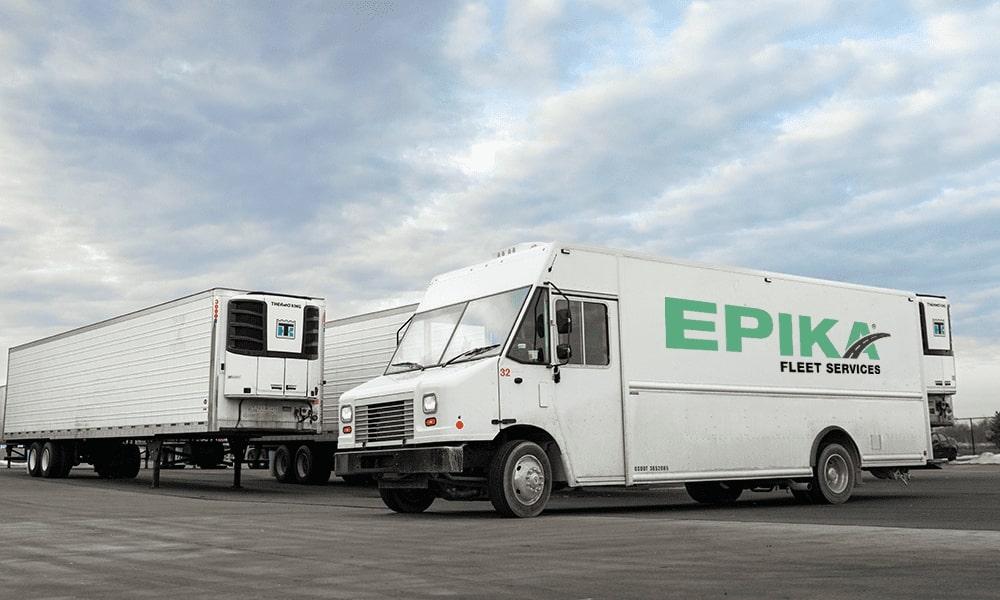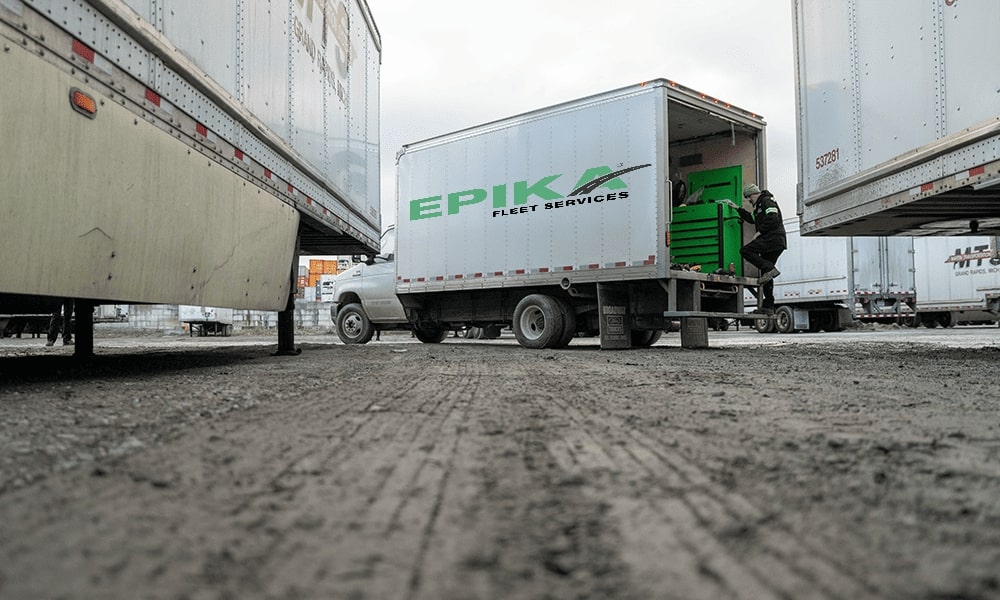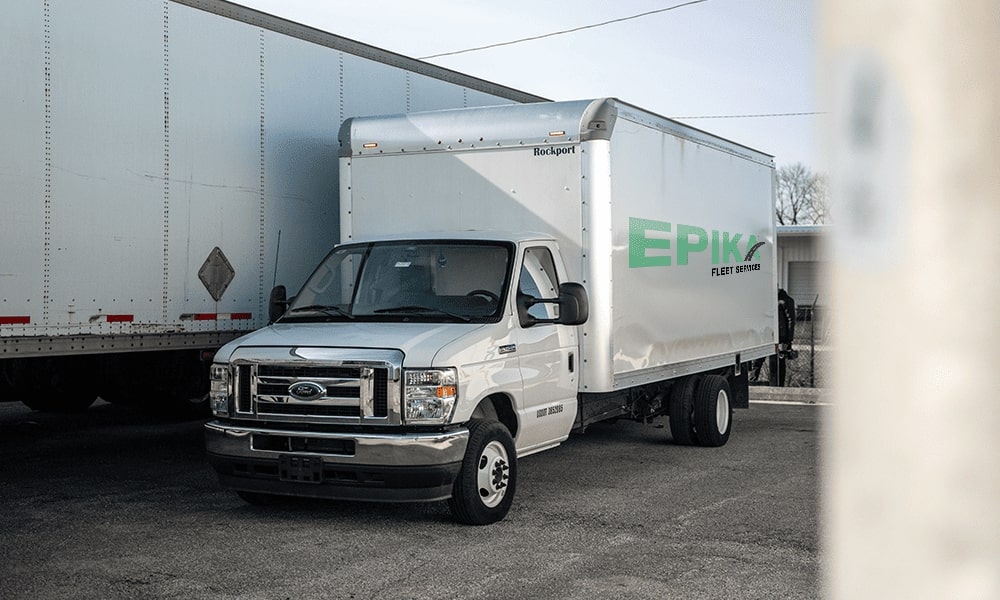Fleet Maintenance Costs

Fleet maintenance costs will drain your budget fast if you’re not staying ahead of them. Regular maintenance of the vehicles guarantees that they stay perfectly efficient and do not develop large repair costs. Keeping accurate records of vehicle expenses helps managers make smart choices to reduce fleet costs in the long run. This keeps vehicles running longer and improves how well the fleet operates.
Cutting fleet maintenance costs by using inexpensive alternatives will help save money significantly. Every checkup requires a monetary investment, and so does replacing worn-out parts, but spending a little today can help you avoid emergencies tomorrow, like a broken-down truck stranded on the side of the freeway. If you plan ahead and perform regular maintenance, you can increase the lifespan and performance of your fleet and save thousands while running nonstop. That’s the goal.
Understanding Fleet Maintenance Costs

Though maintenance makes up the biggest chunk of the bill in fleet costs, it’s not the only thing to worry about. New vehicle purchases, rising fuel prices, insurance premiums, and repair bills—all add up fast.
Fixed Costs
Fixed costs? That’s the stuff that stays mostly the same. Fixed costs normally consist of either vehicle leasing or salaries for fleet management staff. Moreover, depreciation costs and other insurances are predictable and tend to remain the same, which gives the business some last-minute budget flexibility.
Operating Costs
Day-to-day expenses such as fuel, paying the personnel responsible for operating the fleet, maintaining the vehicles, and paying for tolls are operational costs that vary over time. You can’t always control these fluctuations, but effective management enables good control in the long term.
Factors Affecting Fleet Management Costs

If you want to lower your fleet management costs, you’ve got to understand what’s driving them up. Some of the biggest culprits are the trucks you choose, how they’re driven, how you maintain them, and the routes they take. You should be aware of cost-driving factors to cut down on expenses without reducing the efficiency of the fleet.
Vehicle Selection
Selecting the right truck model is an initial step which could define fleet management costs. The vehicle’s age, type, and condition are the primary determinants of fuel efficiency, maintenance, and repair expenses in the long run. Of course, fuel-efficient vehicles can contribute to adequate fleet operating costs, and the purchase of durable models can save repair costs for the future.
The fleet managers should take into account the initial cost of the vehicle with regard to the long-term fleet management cost savings. Newer models are normally very efficient (consume less fuel) and require less maintenance, which makes them more cost-effective.
Maintenance and Repairs
Skip routine maintenance, and you’re bound to run into trouble. Proactive fleet maintenance keeps the vehicles running smoothly and minimizing costly repairs. Essentials such as oil changes, brake checks, or tire rotations are critical in preventing larger repairs down the line.
A well-designed maintenance method can reduce out-of-the-blue repair fees significantly and raise the efficiency of the fleet.
Driver Behavior
Drivers may unintentionally incur increased fleet maintenance costs with their driving habits. Aggressive driving, hard braking, or idling — these habits add up and stretch the fleet maintenance costs while accelerating vehicle depreciation.
Encourage smarter driving among employees. Safe driving and fuel efficiency translate into fleet management fuel cost reduction and increased longevity of vehicles, which is a win for everyone.
Route Optimization
Better fleet routing eliminates non-productive time and saves fuel. Avoid heavy traffic or bad roads, and it goes beyond convenience; it speaks to efficiency.
Fleet Management Cost Per Vehicle

Want to know if your fleet’s bleeding money? Start by checking what each truck is really costing you— calculate the fleet management cost per vehicle. Take the total cost of running the fleet, which includes fuel, maintenance costs, insurance, and wages, and divide it by the number of vehicles you have.
Now you can tell which trucks are eating too much cash and where your operations need fine-tuning.
Fleet Management Cost Per Mile
Fleet management cost per mile turns complex data into the total cost of each vehicle operating in the fleet. It includes all the relevant expenses like fuel, maintenance, and repairs and then divides them by the number of miles driven.
That’s how you figure out exactly what every mile costs you. This metric allows you to make smarter moves, whether it be upgrading your fleet or modifying your route, so your cost-per-mile goes down and your profit goes up.
Fleet Management Cost Analysis

It’s important to stay on top of the numbers regularly. A comprehensive fleet management cost analysis captures everything, whether it be fixed or operating costs like fuel, insurance, and driver wages. It captures what is profitable and what is causing you to lose money.
Having all factors analyzed can change your tactics and run an operation that is lean and more efficient. This is not guesswork; it’s results.
Regular Checks On the Fleet Management
Keeping a regular check on fleet management fuel costs is essential for planning the budget and predicting future fleet needs. Don’t wait until there is a budget cap. Focus on fuel consumption, driver conduct, and maintenance logs at all times.
Reducing Fleet Management Costs

Moving to a lower cost of fleet management is a key strategy to boost profitability and reduce fleet costs. Buying fuel-efficient vehicles, setting up regular maintenance schedules, and using technology for route optimization is the way to go. These don’t fall under luxury — they are prerequisites if you wish to achieve fleet management cost savings.
Another factor to consider is driver training. Teaching good and eco-friendly driving skills will prolong the lifespan of your vehicles, decrease fuel consumption, and limit accidents. This approach plays a key role in fleet cost management. Add in the ability to track all of these with data tools, and you’ll avoid budget waste.
Fuel-Efficient Vehicles

One of the most expensive fleet expenditures in the company is fuel. Why not look for trucks that use less fuel? Switching to fuel-efficient vehicles saves money immediately and has a much greater impact on fleet management fuel costs.
If your fleet is chronically burning through fuel, upgrading might be an option for you. Adjust your fleet’s fuel monitoring systems until you get the data for the best decision.
Regular Maintenance

Costly repairs are not what comes to mind when thinking about long-term savings. Scheduled maintenance is a crucial step in cutting the cost of fleet management. To prevent damage control from becoming too expensive, perform proper vehicle maintenance which enhances vehicle safety, efficiency, and lifespan. Spend a little now, save a lot later. That’s how fleets stay profitable.
Driver Training

The fleet management costs can be the best or worst part of your drivers’ “skills.” Driving too fast, stopping too hard, or idling too much are all harmful fuel consumption traits. With proper training on safe and economical driving, the fleet can save on vehicle maintenance costs, fuel expenditure, and time lost, which in turn increases the crew’s safety. That adds up to increased savings.
Route Optimization Software

With smart routing, you cut out unnecessary driving miles. With route optimization software, your fleet always gets the fastest and most efficient route. Your trucks spend less time idling in traffic, which in turn leads to lower fuel expenses, less damage to the trucks, and cost savings.
Performance Analytics

Looking to uncover the main contributor to your towering costs? Turn to performance analytics. With the proper analytics, you can monitor fuel consumption, fleet maintenance costs, driver habits, and much more that impact your wallet.
You can boost performance and streamline operations by cutting out unnecessary steps, thanks to the insights from performance analytics. This means improved cash flow, better operational efficiency, and a big cut in fleet management costs. No more guessing — perfect decisions.
Conclusion
Maintaining costs for fleet maintenance is not about being frugal, but working smarter with a well-thought-out strategy. The right trucks, a sound maintenance strategy, good driver training, route software and performance analytics— that’s what keeps you ahead of the market.
Decrease fuel expenses, minimize breakdowns, and increase mileage output per vehicle. These factors impact performance positively and lower costs. Optimize your fleet operations with Epika and let us transform your fleet into a force, meticulously honed and always primed for action.
